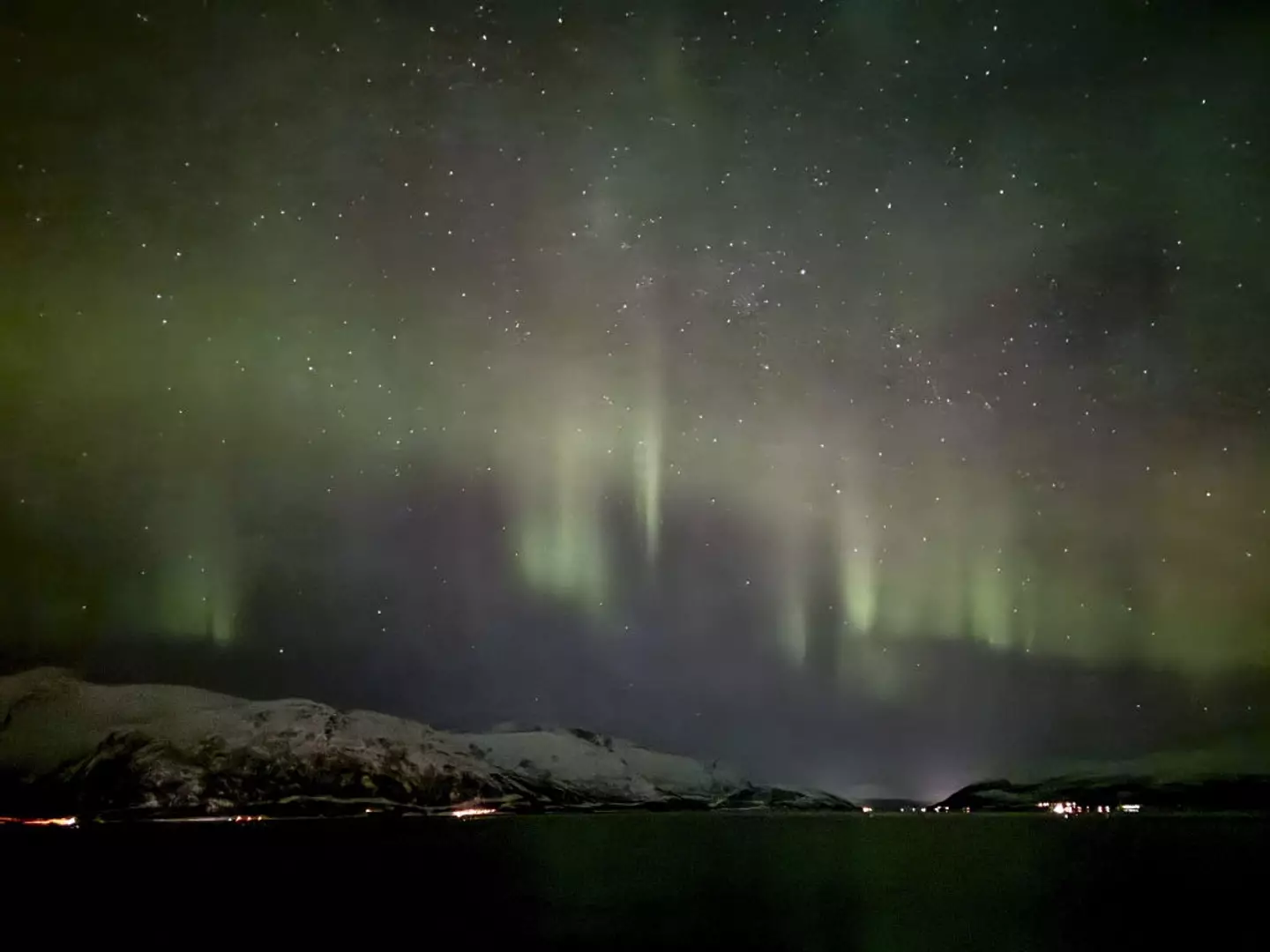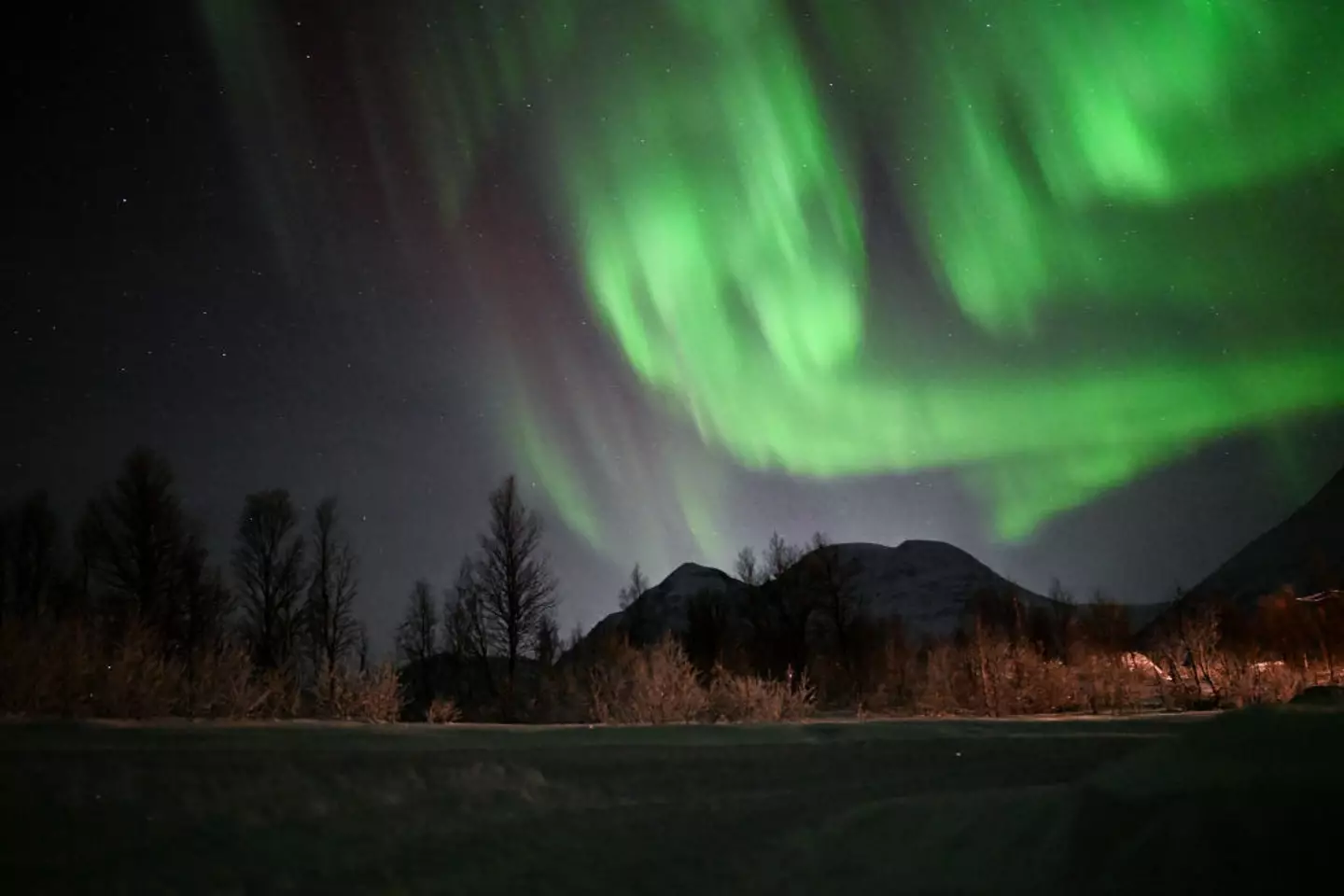.jpg)
People have been left terrified after hearing the noise of Aurora Borealis - also known as the Northern Lights.
The sound has been reported for more than a century, but it wasn't until recently that scientists confirmed it was real.
So what is it and how does it happen?

Advert
The sound has fascinated and intrigued people for years, with comparisons drawn between the sounds of a waterfall from a distance or the noise static makes.
Indigenous communities have also reported hearing the sounds.
As per CNN, Mamie Williams, a member of the Tlingit tribe in Hoonah, Alaska said: “It’s our ancestors letting us know, ‘We crossed over but we’re still here with you’.”
In 2012, acoustic recordings made by acoustic engineer Unto Laine from Aalto University in Finland confirmed the noises to be real.
Since auroras are mostly known for the mesmerising bright dancing waves of light that paint the sky, it’s understandable why so many of us had no idea that they also have a sound.
You can listen to the noise below:
People have been discussing the noise on Reddit, after a thread asking those who work at sea to share the ‘most creepy or most amazing sight’ was started.
One commenter said: “Seeing them [Northern Lights] is absolutely spectacular. Hearing them though was unsettling for me.”
The thread immediately filled with people sharing their reactions to the sound.
“No wonder people thought they were spirits,” one person replied.
A second Reddit user penned: “I didn't hear any whistles, but I have heard people say that. I heard more crackles and pops?”
While a third added: “Sounds like someone adjusting their transistor radio from space.”
Auroras occur after disturbances in the earth’s magnetosphere - the region of space around the earth that is dominated by the planet’s magnetic field.
The disturbances are the result of particles flowing from the Sun and interacting with gases in the magnetosphere.
So what causes the noise?
Laine and his colleagues believe they have figured it out.
He published his temperature inversion layer hypothesis in 2016, which suggests that the sound people associate with aurora borealis, comes from electric discharges at lower altitudes of around 70 and 90 meters.
This happens during calm and clear weather when a temperature inversion layer is produced. This is a layer in the atmosphere where the air warms with height rather than cooling with height.
Laine said: “In the evening of a sunny day, warm air close to the ground starts to rise while the ground temperature drops. Finally, the rising of the warm air stops typically below an altitude of 100 meters (328 feet).
“This layer of a warm air, having colder air above and below it, is called temperature inversion layer.”

Laine's work suggests there’s probably a causal link between the auroral sounds and geomagnetic activity. The process which creates the sounds is different to the process that creates the light displays, but because they’re both produced by geomagnetic activity, they appear together.
The ‘largest surprise’ from his research was that both the aurora sound and aurora borealis can be observed separately and together. They don’t have to coincide.
Laine told Sciencealert.com: "The sounds are much more common than anyone thought, but when people hear them without visible aurora, they think it's just ice cracking or maybe a dog or some other animal.”
Topics: World News, Science
